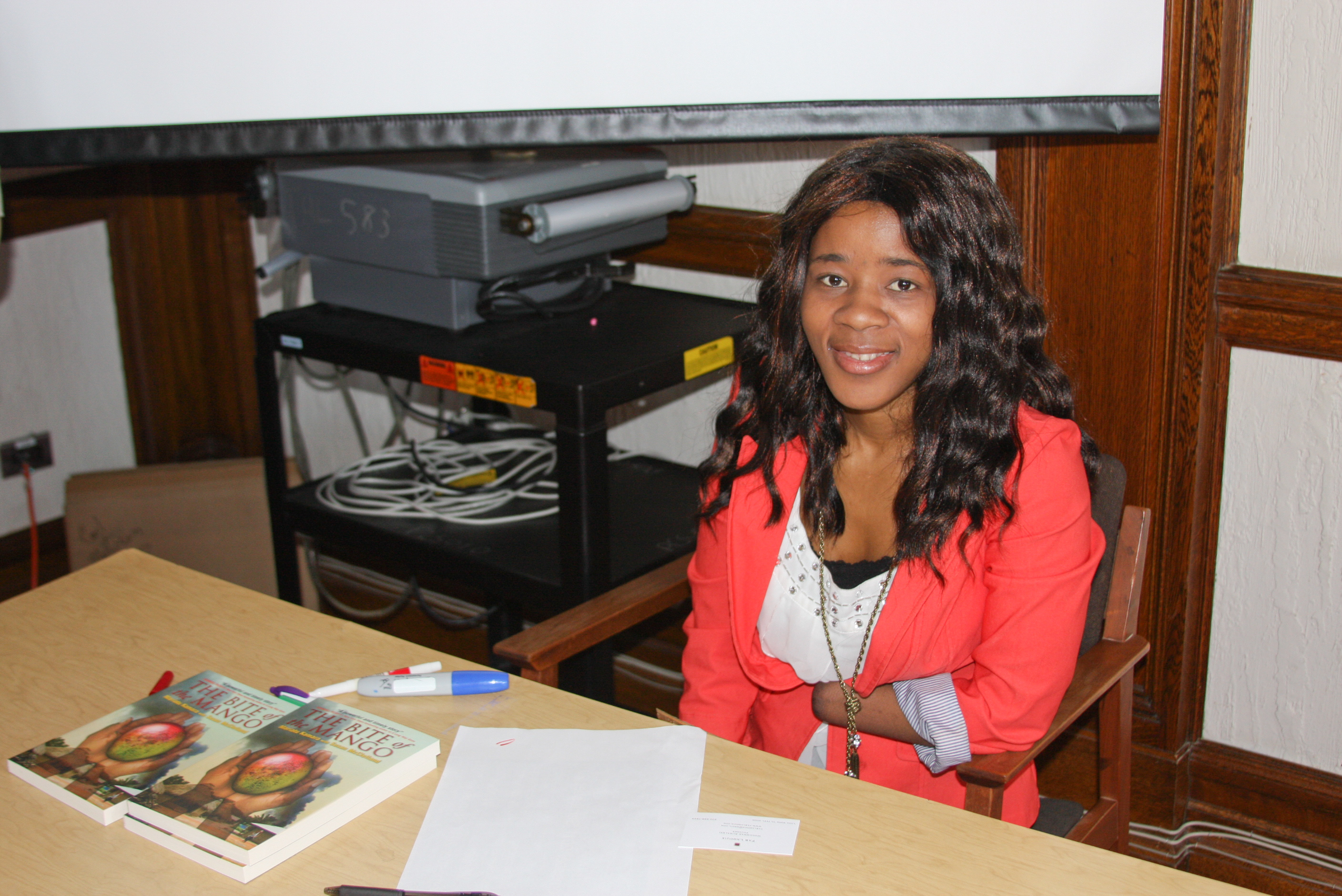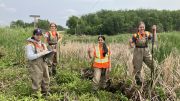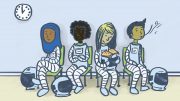Mariatu Kamara, UNICEF special representative for children in armed conflict and author of the book The Bite of the Mango, was at the University of Manitoba on Tuesday, Mar. 19 to share with students her story of adversity and survival, both during and after the civil war in Sierra Leone.
During the war, which lasted from 1991 to 2002, Kamara’s village was attacked, and the invading rebel army amputated both of her hands. Following the assault, Kamara was able to make her way to a hospital, partially with the assistance of strangers. At the hospital, she discovered that she was pregnant. Eventually, she gave birth to a child who died a short time later.
Prior to moving to Canada on a UNICEF sponsorship, Kamara spent time living in the Aberdeen Amputee Camp in Freetown, Sierra Leone.
“I would say to anybody that is caught up in violence, don’t just lie there and say, ‘I’m done.’ You’re not done. You still have your life,” was Kamara’s message to the crowd of students that had gathered in the Tier Building conference room.
Kamara explained that it is sometimes difficult to perform her daily tasks, but she is nonetheless able to get by.
“It is these little things that we take for granted.”
Since coming to Canada, Kamara has attended high school and is now pursuing social work.
Kamara also mentioned that she is working on developing a foundation for amputees in Sierra Leone. She later expanded on her plans to the Manitoban.
“The basic idea is that I want to open a centre where amputees can have training on basic life skills, such as sewing and cooking.”
“I also want to offer [a] counselling environment for women and children, and basic education for children who have started their education but have not been able to continue,” she added.
Kamara perhaps surprised a few in the crowd when she said that a part of her healing journey involved forgiving the Sierra Leone rebels for what they had done to her.
“It is very hard, but I am finding it in my heart to forgive the rebels. Many of those rebels were children that were taken from their family members. Their parents were killed, they were taken away, and they were forced to become monsters. [Forced] to kill people and to cut off their limbs.”
Rebecca Kunzman, one of the U of M students involved in arranging Kamara’s visit to the campus, told the Manitoban that this forgiveness is what resonated with her about the speaker’s story.
“I was greatly inspired by her ability to acknowledge the difficult, yet necessary process of looking forward after difficult times and moving towards reconciliation and peace.”
During Kamara’s highly personal speech, she was quick to shy away from making overarching political judgments on matters of international relations or humanitarian intervention.
When asked about her thoughts on international political strategies to prevent future atrocities, she answered hesitantly in favour of a pre-emptive approach.
“I think that if we try to prevent conflicts from breaking out, that would be the best way to help,” said Kamara. “International organizations such as the UN always seem to wait until a violent conflict erupts before they send help [ . . . ] this doesn’t make much sense to me, when it is often said that it is better to prevent than to cure.”
She also suggested that stopping the importing of guns to African nations in turmoil could help to prevent the severity of atrocities.
Despite her tentative approach to talking politics, Kamara also made clear that she has not ruled out pursuing that career path in the future.
“I don’t want to get into it too much, because I am not a politician. I wish that I could be someday,” she mentioned following her response.
Students also asked Kamara questions about her experiences as a high school student in Canada, the benefits of working in conjunction with UNICEF, and what she misses the most about her old life in Africa.
Copies of Mariatu Kamara’s book The Bite of the Mango, which she authored with Susan McClelland and was published by Annick Press, were available for purchase at the end of her presentation.
The World W.I.S.E Resource Centre’s ambassador group, as well as the University 1 (U1) Student Council, hosted and arranged Kamara’s talk at the U of M.
The World W.I.S.E ambassador program is the volunteer arm of the U of M’s World W.I.S.E Resource Centre. Volunteers are involved in recruiting international students and helping them adjust to life in Canada, researching international issues, and organizing workshops and events.




